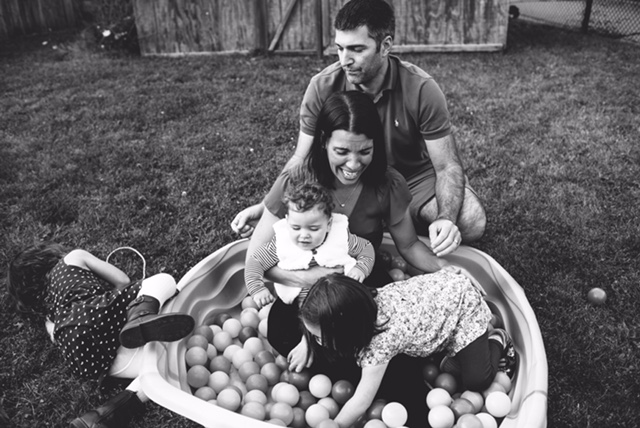I sat at my desk chair this morning, my mind churning with thoughts, ideas tossing and turning, waiting for that one to pop up to the surface and answer my question; to reveal the topic of the day’s writing like a future foretold by a magic eight ball.
Well, the idea’s arrived and it’s here to stay. The topic of today’s blog post is… *drumroll please!* Writing – yeah!
Writing about writing, that’s so meta, right?
Writing, writing, writing, where to start? To write well, one must read well and often. I just ran upstairs to count the books on my nightstand, which frankly, is looking a little out of control. Thirteen books await my eager eyes. I know I have another one on the way, and a notification from the library popped up that I have another book on hold available to pick up. One of those thirteen books is a hiking guide, disregard that one (unless you’re into hiking, then pick up a copy of one of Nicola Ross’ Loops and Lattes books for local hiking in your area). There were also two notebooks on my nightstand, giving us a grand total of fifteen books. One of those notebooks is a journal where I jot down thoughts, occasionally chronicle my days like in a diary and insert quotations and important lines from books I want to come back to, or remember, or use in my own work later. The second smaller notebook is lined with the names of books I have read. Two and a half years ago, I gave myself the challenge of reading one hundred books that year, and I’ve been documenting what I read ever since. This practice has come in handy! Listing books read has prevented me from reading the same book twice, and reminded me of that amazing story with the title or author that’s slipped my mind.
The book I’m currently reading, Cherry by the great memoirist Mary Karr, isn’t even on my nightstand. It’s right in front of me. I took it with me on the drive to drop off the kids at school this morning and then it followed me into the dentist’s office – just in case. You never know when you might have a spare moment to read and I like to keep my books close (read: bibliophile, much).
Of the thirteen books I’ve mentioned, a few are fiction, several are memoir, one’s for my book club, I believe there’s an anthology in there, a book profiling Canadian authors, then last but not least, there’s a book about writing. At this point, I have to mention Mary Karr’s book about writing, The Art of Memoir, as one of my favourites on the subject, and which has lead me to more of her work (Cheery, Lit). Steven King’s On Writing: a memoir of the craft is also brilliant. I pay attention when other writers whose work I enjoy mention their go-to writing bibles. Recently, Betsy Lerner’s The Forest for the Trees came to me this way after Canadian author Lindsay Wong (The Woo Woo) lauded the book in an interview. Its lovely cover is sitting top of the pile, and is inscribed with this promise: An Editor’s Advice to Writers. Yes, please! Editors are almost god-like in the writing world; they wield an indeterminable amount of power.
Me (lowly writer): Hello there Mr. or Mrs. Editor Sir, uh or Mam, won’t you please take a look at this manuscript and consider publishing my book?
Editor (for publishing house): HA-HA-HA! (evil laugh)
Me: Okay, I’m just going to leave this here, and hopefully you’ll take a look at it.
Automated message reply: Thank you for dropping your manuscript, heart, and soul, into this slush pile. Please take a seat and we’ll get back to you shortly (in six months to a year).
You guys, editors aren’t evil – not at all! But they certainly hold power to make decisions about who gets published and who does not. I love reading books written by editors who provide honest and direct feedback about what gets published and what doesn’t. A book I love for this exact reason is Pat Walsh’s 78 Reasons Why Your Book May Never Be Published & 14 Reasons Why it Just Might Be. I mean, come on! What a title. For any aspiring authors out there, it’s like, just give me the fourteen reasons! And fingers crossed your book doesn’t fall under the 78 reasons why not. I tore through that book, then accidentally stole it from the library after I returned it with a pile of other books, was sure that I returned it, noticed it was marked as unreturned in my library profile, told them I returned it and got them to remove said unreturned status. Two months later I found 78 Reasons tucked onto one of my book shelves, the cheeky devil, and I took this as a sign that I was meant to keep it. Okay, okay, I probably should still return it and buy my own copy, and one day I will, but in the meantime, I’m sure they’ve easily replaced the rogue paperback with the more than twenty dollars in late fees I’ve paid over the years. Now I’m sounding bitter – I’m not, really I’m not. I love and respect my library! Somebody’s going to send me a nasty note about this.
Maybe what I will learn from writing about this experience is that what happens in the library, should stay in the library. You guys don’t need to know all my dirty book secrets.
What I can tell you, hush, hush, is what I’m currently working on. Just a snap shot. This is kind of a faux-pas in the world of writing. In On Writing, Steven King urges writers not to do this. Talking about your writing and sharing pieces of your writing before it’s actually finished is really just a form of distraction and procrastination – touché, King. But when you’re writing a blog about writing, I think then it’s okay.
There’s my book – My Book, book – the gleaming manuscript, polished and waxed, titled and sent out into the big scary world of publishing. Fingers crossed I hear something soon (likely in the next six months, I’m told). That’s all I’ll say about that. Until it’s published, I’m “working on it”.
There’s a new book I’m working on too, but now, you see, all of a sudden I’m feeling shy. Is it because I’m worried someone will steal my ideas? Elizabeth Gilbert talks about this phenomenon in her book Big Magic, how ideas fly in, land in our heads, and while some take up residence, others move on to more accommodating abodes, homes where they can be fully appreciated. There’s a scene Gilbert writes about meeting her new friend Ann Patchett – celebrated writer and book store owner – for the first time backstage at a speaking event. Both American authors, completely unknown to each other before this moment, coming from opposite ends of the country. Naturally, the topic of, So what are you working on? comes up, and they both realize they’re each deep into the process of creating a fictional romantic story about the construction of a bridge taking place in the heart of the exact same Brazilian rainforest. What are the odds? The point is that ideas don’t really belong to us until we make them our own, and that in writing, even if two authors write about the same thing, you may approach it a million different ways. Besides, the book I’m working on isn’t a new concept, it’s been done, just not from the angle I’m going to tackle it.
So, I’ll tell you a bit about this side book project I have on the go. It involves getting rid of something every day and writing about it. I started this project last August after my family of five spent a week at my aunt’s cottage with nothing but the bare essentials: clothes and food for the week, the beach, the sun overhead and each other. There was a laundry basket filled with toys too, but the kids didn’t touch it. And we were happy, blissfully happy. It made me realize how living a life with less could be so meaningful and fulfilling, and I wanted to bring that feeling back home into our daily lives. So far, let me tell you, I cannot believe how much stuff we have to give away. I’ve sold things on Facebook groups, through Kijiji, in a garage sale, through porch pick ups, at reuse shops and to friends. Likewise, I’ve donated items to drop off bins, the Salvation Army (more times than I can count), at Wastewise, posted items for free on Facebook and passed things off to friends and family, and STILL there are more things we really don’t need or even want kicking around. I don’t believe this is a problem unique to my family. I’ve thrown many items into the trash, which tells you something about the things we keep even though nobody would want them or use them – think, dried up markers for examples.
This year I’m waging a war on stuff, and though it’s mostly a losing battle (getting rid of stuff makes you realize how much more is regularly coming in), I’ve had fun discovering and writing insights down along the way. Will this be my next book!? Maybe. I have so many other competing ideas (more on those another day), but if I’ve learned nothing from writing my first book let it be this: you have to be committed. To liken book writing to running, producing a finished manuscript is akin to finishing a marathon. Both take dedication, sustained effort, long hours of training, failure and even injury (!), but it’s the process you look back on fondly once the race is said and done. Whether this project becomes a book or not, the practice of daily writing has been worthwhile, in and of itself, and I highly recommend picking your own daily writing practice project for no other reason than the sake of the writing. Also, because nothing in your life is ever wasted. I repeat, nothing in your life is ever wasted. As a writer, everything is material.
I promised myself I would enter more writing contests this year because that would mean I am doing a lot of – surprise, surprise – *writing*. I’m currently working on two contest entries: one for Fiddlehead’s creative nonfiction contest, the other for ROOM’s creative nonfiction contest, and a third piece for contest unknown. As I write this, I’m remembering that contests have DEADLINES. I just checked, and I only have three days left until ROOM’s deadline. Eek. In completely unrelated news, I have to go. Seriously – but first – I want to share one last writing-related challenge I’ve latched on to. An idea that’s found a new home. You could use this strategy in any area of your life where it might apply. I’m working toward one hundred writing-related rejections. You heard me right. It’s well documented, but maybe less well known outside the writers’ circle, that successful writers, and even their masterpieces, are often rejected dozens to hundreds of times before they find their success. A comedy writer, whose name has escaped me, took this to heart, and decided she would aim for one hundred rejections. Along the way, she was accepted something like 63 times, and ended up getting published in places she wouldn’t have dreamed of trying before. I love the idea! I’ve got my own “on my way to success” board set up, listing all my submissions on one side, and rejections on the other. I have a long ways to go, better get to it!
If you’ve decided to adopt this reframing of failure strategy as I have, then please take these words to heart. Happy writing (or whatever it is that you do) and good luck practicing! I wish you many failures.










